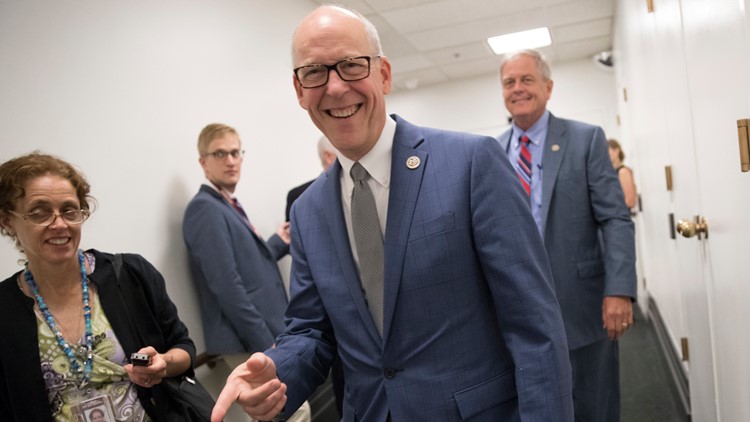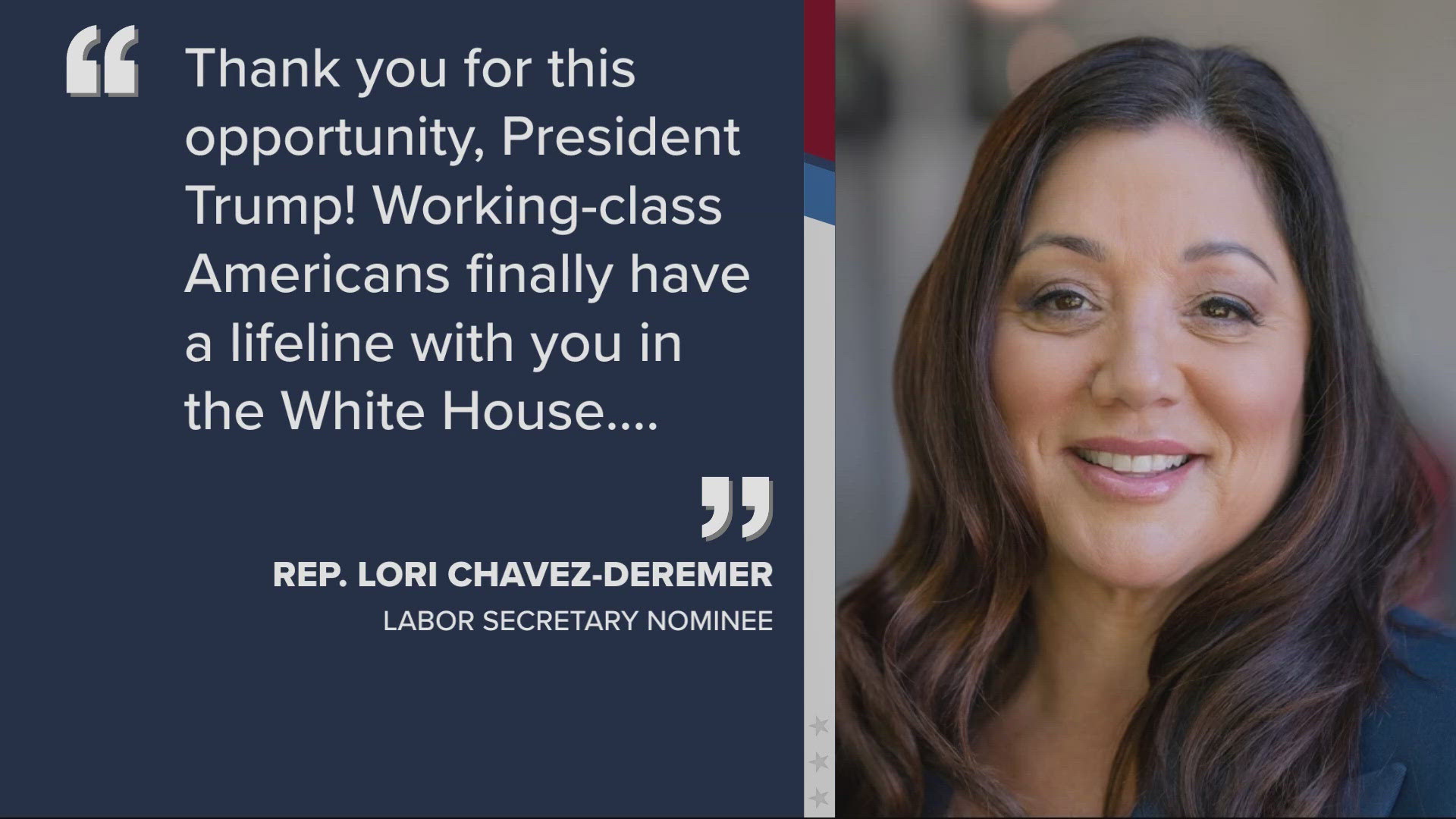SALEM, Ore. — For the first time in 22 years Oregon’s largest congressional district, which is reliably red in a blue state, will not have an incumbent listed on November's ballot.
U.S. Rep. Greg Walden’s retirement opened an opportunity for a new U.S. House representative. Although the Democratic candidate, Alex Spenser, said she feels she has an “excellent chance” at becoming the first Democratic Representative the historically conservative region has seen in four decades, political experts say Oregon’s 2nd Congressional District race is practically a foregone conclusion for Cliff Bentz, a former Republican state senator, likely to emerge as the winner
“This is just one of those seats that is incredibly hard to take away,” said Christopher McKnight Nichols, an associate professor at Oregon State University’s School of History, Philosophy and Religion. “It's effectively a gerrymandered seat for Republicans.”
The vast 2nd Congressional District is the largest in Oregon, covering roughly two-thirds of the state in rural eastern and central Oregon. It is the seventh largest district in the nation. The population of the area is 648,280, according to the 2000 U.S. Census.
The district has been represented by Walden since he was first elected in 1998. Walden is the only Republican among Oregon’s congressional delegation of two senators and five representatives.
During Walden's 11 election cycles, the closest race was in 2018 when he won by 17 percentage points against Democrat Jamie McLeod-Skinner.
In October Walden announced that he would retire in January 2021.
Walden’s retirement paved the way for Bentz, a former lawmaker from Ontario and the winner among 11 candidates in the May GOP primary.
Bentz, a lifelong Oregonian and Conservative Republican, served in the state's House of Representatives for 12 years. He resigned in 2018 after being appointed to the state Senate and stepped down again in 2020 to campaign full time.
"I am often asked what separates me from other candidates in this race," Bentz said on his campaign website. “The answer is simple: I have been a resident of, and I have stood up for (the 2nd Congressional District) and Eastern Oregon my entire life.”
Throughout Bentz’s candidacy, he has emphasized his family’s extensive history in Oregon and his conservative voting record in the Legislature. He has focused on regional issues surrounding federal land use, water and agriculture.
Bentz, who participated in a series of Oregon Republican State Senator walkouts in 2019, has taken the stance of pro-gun and anti-abortion. He has applauded President Donald Trump's economic policies and the president's response to the COVID-19 pandemic.
“America is not just a country; it is an idea. A very successful idea that no one else in the world has been able to duplicate,” Bentz said. “Under President Trump’s leadership, the possibilities for our country’s future have expanded quickly and dramatically. We, the people of this United States of America, will continue to achieve.”
While in the House, Bentz served on the Revenue, Transportation, Energy and Environment, Legislative Counsel, and joint tax credits committees, and as a member and chair of the Legislative Council on River governance and the Oregon Hunger Task Force.
Running against Bentz is Spenser, a writer, performance coach, single mom and campaign strategist.
Spenser founded and lead the Women's March in Klamath Falls. She has also worked as a campaign strategist and writer for Raz Mason’s two runs for the U.S. House, and was a writer and performance coach for Jamie McLeod-Skinner, who ran against Walden in 2018.
“I am feeling very confident,” Spenser said.
Spenser supports comprehensive healthcare coverage, more tuition assistance, energy reform, pharmaceutical reform, gun responsibility, fair water rights and campaign finance reform.
Spenser stressed that her platform centers around bringing people together and healing divisiveness in the country.
“I believe we began to tear the fabric of America when we stopped talking with respect about religion and politics at the dinner table, then we pulled at the fraying threads of democracy when we agreed to disagree. This stopped our conversations,” Spenser said on her campaign website. “The hard work of communication demands that we have Representatives with the ability to hold more than one idea at a time, and work to understand each other’s point of view.”
Political experts say Spenser's lack of money and name recognition paired with the voter ratio will make it nearly impossible for the Democrat to win.
Nichols said that the largest hurdle Spenser faces is that there are roughly 40,000 more registered Republican voters than Democrats.
“If you look over time, this state has coalesced around this sort of Democratic majorities in the last generation,” Nichols said. “What has happened in the 2nd, is that is the one place where that is really not true at the congressional level.”
There are more than 200,000 non-affiliated registered voters, but Nichols said “they tend to break along the same split as the rest of the district, namely, hard to the GOP.”
Spenser argued otherwise: “Those folks are looking at someone to be their voice or they would have chosen to be republicans. That is definitely in my favor."
One challenge that some experts say can level the playing field — the coronavirus pandemic that has forced a stay-at-home order.
Typically candidates spend their days driving hours across the sprawling district to campaign events at VFW Halls and county fairs where they meet residents and shaking their hands. But this year, due to COVID-19, candidates are forced to host events from their computer.
Rebecca Tweed, a campaign strategist, told Oregon Public Broadcasting that by the candidates utilizing technology, such as Zoom, Facebook Live and virtual townhalls, it can “actually have an opportunity to reach more voters and more constituents than they would have if they were traveling city to city or event to event.”
But Nichols said the pandemic is more disadvantageous, with candidates needing better name recognition and money to spend on advertising, reaching areas that they are unable to visit.
“Honestly, there is very little Democrats can do," Nichols said. "Even less in pandemic because of bans on gatherings and wariness of events in general, to combat the likelihood of a Bentz victory.”



